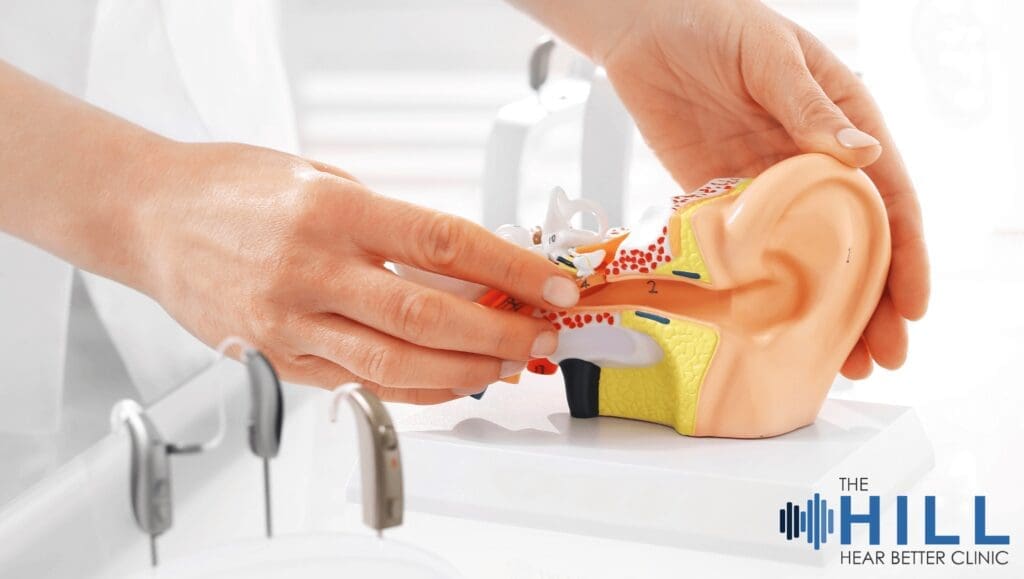
Hearing loss is a common experience that affects many aspects of daily life, from conversations to everyday sounds. Effectively managing hearing loss requires expert intervention. It’s important to know which doctor to turn to for personalized treatment and comprehensive care.
What is hearing loss?
Hearing loss refers to a partial or total inability to hear sounds. It can be categorized into different types: conductive, sensorineural, and mixed.
Conductive hearing loss happens when something blocks sound from reaching the inner ear, like earwax buildup or fluid. Sensorineural hearing loss is caused by inner ear or auditory nerve damage, which usually can’t be fixed with surgery or medicine. Mixed hearing loss involves a combination of both types.
Common causes of hearing loss include aging, exposure to loud noises, infections, genetic factors, and certain medications.
What kind of doctor should I see for hearing loss?
If you’re experiencing hearing loss, booking an appointment with an audiologist is best.
Audiologists are highly specialized healthcare professionals trained in evaluating, diagnosing, and treating hearing loss. They are experienced in performing various tests to assess the extent and nature of hearing loss, including audiograms and tympanometry. This comprehensive evaluation helps audiologists determine each patient’s best course of action.
When should I book an appointment with an audiologist?
There are several scenarios where you may want to book an appointment with an audiologist.
Firstly, routine hearing screenings are essential for people of all ages. Routine screening can help detect early signs of hearing loss before it becomes more pronounced. Routine check-ups can also be beneficial for people experiencing hearing loss to ensure they have a proper treatment plan.
Additionally, if you find yourself having difficulty understanding speech, frequently asking others to repeat themselves, or noticing persistent ringing in your ears (known as tinnitus), these could be indicators that you should seek evaluation from an audiologist.
An audiologist will provide personalized care and recommend appropriate solutions to address your hearing concerns, ensuring optimal hearing health and quality of life.
What do audiologists do?
Audiology services are aimed at enhancing and managing your hearing health. They conduct thorough evaluations to recommend suitable hearing aids and ensure proper fittings tailored to your needs. An audiologist will help you create a treatment plan, help fit your hearing technology, provide care using the latest technology, and more.
They also offer valuable counseling on coping strategies, communication techniques, and effective management of hearing loss, all of which contribute significantly to improving quality of life. It’s important to actively engage with your audiologist during appointments, asking questions to gain clarity and confidence in your treatment plan.
You should also consider how collaboration with other healthcare professionals, such as Ear, Nose, and Throat (ENT) specialists, is often key to effectively treating hearing loss. This cooperative approach ensures comprehensive care, addressing both the auditory and medical aspects of your hearing health. By working together, audiologists and ENT specialists can provide integrated care that meets your specific needs and enhances your overall well-being.
Contact our audiologists.
Seeing an audiologist is crucial for addressing hearing loss effectively. Their specialized knowledge and skills enable them to provide personalized care and support throughout treatment. Individuals can significantly improve their hearing health and overall well-being by taking proactive steps and seeking timely assistance.
If you’re ready to connect with an audiologist, please contact us today. Our team of audiologists would love to work with you to improve your overall health and well-being.
